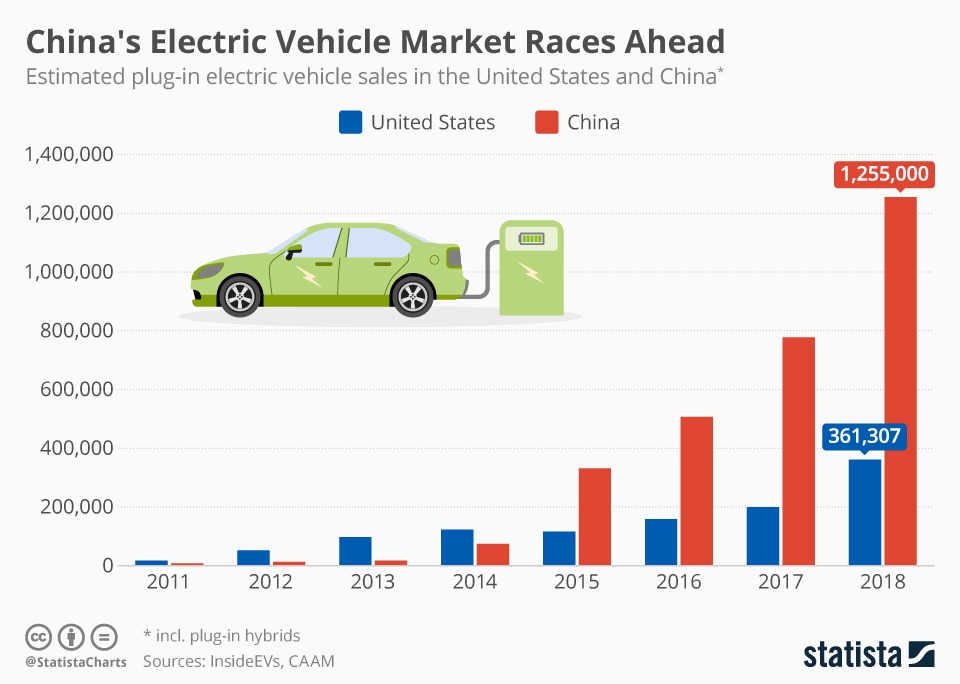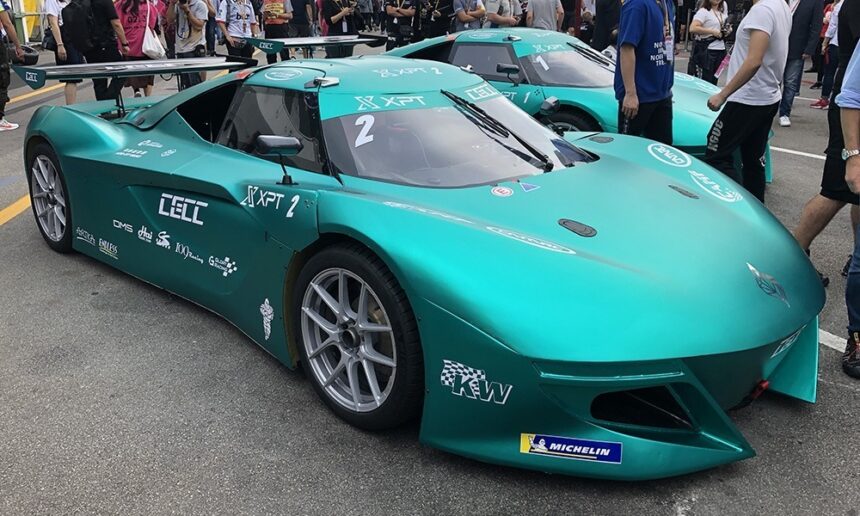China’s electric vehicle (EV) market, once characterized by a race to produce the most cars in the shortest amount of time, has undergone a significant transformation.
In recent years, the competition has shifted from merely scaling up production to mastering the critical technologies that underpin the next generation of EVs. At the heart of this transformation is the burgeoning importance of semiconductor technology, which is reshaping the landscape of the automotive industry.
This post explores how China’s electric car race is increasingly about chip prowess and technological innovation.
The Evolution of China’s Electric Vehicle Market

China’s journey into the electric vehicle sector began with a focus on boosting production capabilities. The government provided substantial incentives to manufacturers, and companies scrambled to scale up their production lines.
During this period, the emphasis was primarily on producing a high volume of affordable EVs to meet the burgeoning demand and to establish a foothold in the domestic and international markets.
However, as the market matured, it became clear that success in the EV industry required more than just volume. Consumers and manufacturers alike began to recognize that advanced technologies, particularly in areas like autonomous driving, infotainment systems, and battery management, were becoming increasingly crucial.
This realization has driven a shift towards technological innovation, with a particular focus on semiconductor technology, which plays a critical role in these advanced features.
The Rise of Semiconductor Technology in EVs
Semiconductors are often described as the “brains” of modern vehicles, particularly when it comes to electric and autonomous driving technologies. These tiny chips are integral to the operation of various vehicle systems, including battery management, advanced driver-assistance systems (ADAS), infotainment, and autonomous driving features. As such, the ability to design and manufacture high-performance semiconductors has become a key differentiator in the competitive EV landscape.
In China, this shift towards semiconductor technology is driven by several factors:
Technological Self-Sufficiency: China has long sought to reduce its reliance on foreign technology, especially in critical sectors like semiconductors.
The country’s government has launched numerous initiatives to boost domestic semiconductor production and innovation, recognizing that control over chip technology is essential for maintaining a competitive edge in the global EV market.
Advanced Driver-Assistance Systems (ADAS): As EV manufacturers seek to enhance the safety and convenience of their vehicles, ADAS features such as lane-keeping assist, adaptive cruise control, and automatic emergency braking have become standard.
These systems rely heavily on sophisticated semiconductor chips that process vast amounts of data in real-time. Companies that can develop or source advanced chips for ADAS gain a significant advantage in the market.
Autonomous Driving: The race towards fully autonomous vehicles has intensified the demand for high-performance chips. Autonomous driving technology requires complex algorithms and massive computational power, which are enabled by advanced semiconductor solutions.
Companies that excel in developing these chips are well-positioned to lead in the future of transportation.
Battery Management Systems: Efficient and safe battery management is critical for EVs. Modern battery management systems (BMS) rely on precise semiconductor components to monitor and control battery performance, ensuring longevity and safety. Companies that can innovate in this area can offer superior EV performance and reliability.
Key Players in China’s Semiconductor-Driven EV Race
Several Chinese companies are making notable strides in semiconductor technology and its application in electric vehicles:
BYD: BYD, one of China’s largest EV manufacturers, has invested heavily in semiconductor research and development. The company has developed its own battery management chips and is working on advanced driver-assistance systems. BYD’s focus on in-house chip development aims to reduce dependence on foreign suppliers and enhance the performance of its vehicles.
NIO: NIO, another major player in China’s EV market, has made significant investments in autonomous driving technology. The company’s NIO Pilot system, which includes features like adaptive cruise control and automatic lane change, relies on high-performance semiconductors. NIO has partnered with chipmakers to ensure that it has access to the latest technologies.
Xpeng Motors: Xpeng Motors is known for its focus on technology and innovation. The company’s P7 sedan, for example, features an advanced driver-assistance system that relies on chips from both international and domestic suppliers.
Xpeng is also working on developing its own semiconductor solutions to further enhance its technological capabilities.
Geely: Geely, one of China’s largest automakers, has been actively investing in semiconductor technology. The company has established partnerships with chip manufacturers and is exploring opportunities to develop its own semiconductor solutions to support its growing EV portfolio.
The Challenges Ahead
Despite the rapid advancements, the journey towards semiconductor prowess in China’s EV market is not without challenges:
Supply Chain Dependencies: Although China is making strides in semiconductor technology, the country still relies on global supply chains for certain advanced chips.
Geopolitical tensions and trade restrictions can disrupt these supply chains, posing risks to the production and innovation efforts of Chinese EV manufacturers.
Technological Complexity: Developing advanced semiconductor technology is highly complex and requires significant investment in research and development.
Chinese companies must navigate this complexity while competing with established global players in the semiconductor industry.
Intellectual Property: Intellectual property rights and patents play a crucial role in semiconductor technology. Chinese companies must carefully navigate international intellectual property laws to avoid conflicts and ensure that they can freely use and develop new technologies.
The Future of China’s EV Market
As China’s electric vehicle market continues to evolve, the focus on semiconductor technology is expected to grow even stronger. The ability to design and manufacture high-performance chips will increasingly determine the success of EV manufacturers, shaping the future of transportation in China and beyond.
The shift towards chip prowess reflects a broader trend in the global automotive industry, where technology is becoming the defining factor of success.
For Chinese companies, mastering semiconductor technology is not just about staying competitive; it is about leading the way in the next generation of electric and autonomous vehicles.

